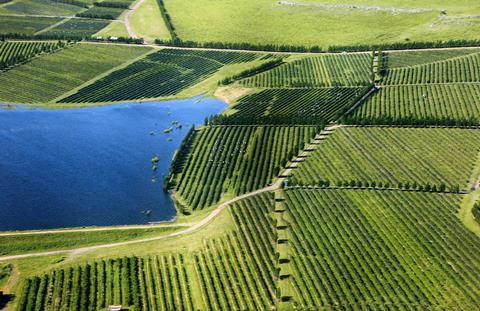
What impact did Brexit have on Latin America?
Julieta Lagreca (JL): Brexit was a fact that moved everyone around the world. As happened across Latin America, last year Uruguay suffered bad repercussions because of Brexit, but they were not that big compared with other countries in the region.
Last year when sterling went down, the dollar strengthened and that pushed commodity prices down. It was a bad situation for Uruguay as our main exports are raw materials, so that also made some farmers stop planting because of the financial impact this generated.
How will Brexit affect trade between the UK and Uruguay?
JL: Brexit also lowers growth rates around the world. This was partly due to the reduction of commerce between the European Union and the UK. The countries that export raw materials will be affected, as the rich countries will buy less oil, minerals, grains and other basic products that Latin America sells. In the case of Uruguay, our main products are raw materials like soybean, corn, citrus, fresh and frozen meat, wool, leather and wood.
After this situation our country also expected lower growth rates. This is not only because of the relationship between UK and Uruguay, but also because of the relationship our main importers have with the UK.
The Urunet database shows that Uruguayan exports to the UK are worth approximately $60 million, which used to represent six per cent of the total exported to the European Union. The main products Uruguay sends to the UK are fresh and frozen meat, wood and citrus.
As a conclusion Uruguayan producers were mainly affected financially and not in terms of commerce. In the blueberry market there will not be any inconvenience as long as tariffs stay at a reasonable level (if the UK decides to increase tariffs after it breaks away completely from the EU). Imports for the UK come under Most Favoured Nation (MFN) duties and is zero per cent for Uruguay.
Is the UK berry market attractive for Uruguayan exporters?
JL: It has always been; in fact, the UK was the third top export destination for blueberry exports from Uruguay until 2015. Last year it held fourth place, with 169 tonnes of blueberries exported to the UK ($1.1m). Exports to the UK have been going down since 2011.
What volumes does Blue Forest currently send to Europe? How is this changing?
JL: We are actually sending half of our production to Europe. This could change slightly through the years because of market conditions. However, our aim is to have a strong relationship with our clients in the long term.
What challenges are there in exporting to the EU?
JL: The biggest challenge is to change the way we transport the fruit. It is a fact that the market is asking for vessels in a certain time of the season but I believe airfreight will always provide the best fruit quality. We have good varieties that will certainly handle the longer trips.
What positives do you see for the global fresh produce industry once the UK leaves the EU?
JL: The UK industry will recover and it is likely that services for fruit will increase, for example there might be more packing lines near airports and ports. This can improve the ‘in bulk’ exports of blueberries. There might also be new routes or direct vessels from Latin America to the UK.



